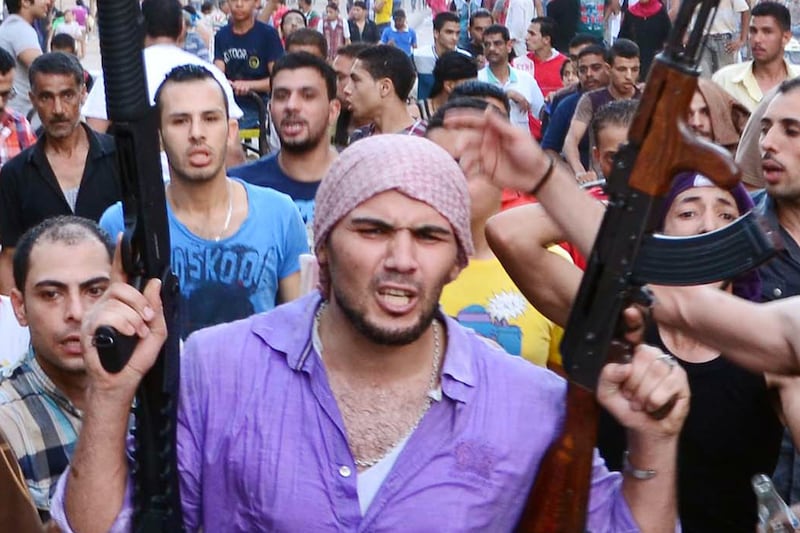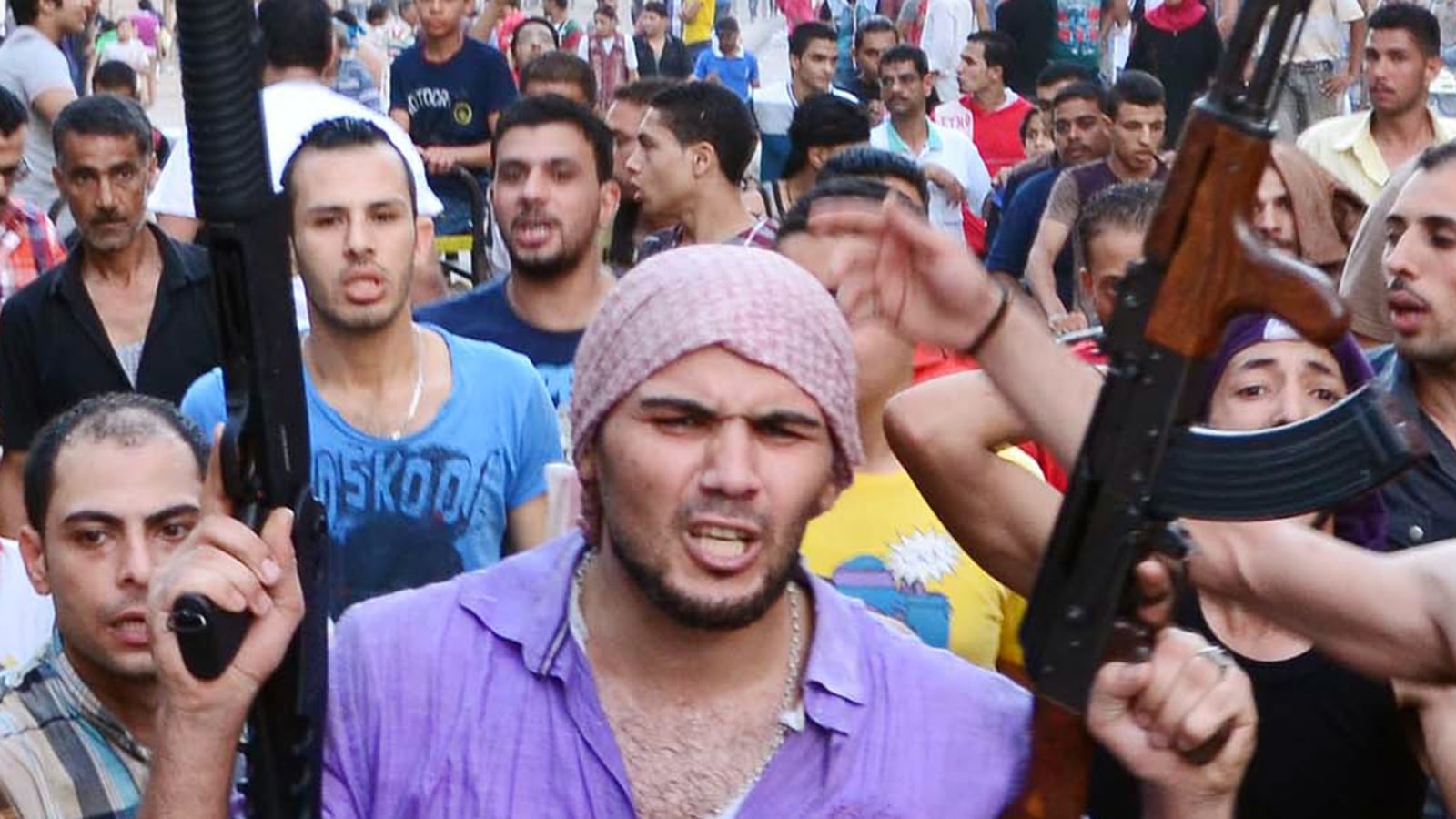The phone rang for a few seconds before a man answered, his voice deep and rough. “All the weapons I had have been sold already,” he said. “But tell me what weapons you want and I will find them for you. Where should we meet?”

The black-market arms dealer is happy. As a result of increasing fear, seemingly unrestrained political violence and rising crime rates, his business is booming.
Kalashnikovs are no longer an uncommon sight on the streets of Cairo and Egyptians are growing more accustomed to hearing the sound of AK-47 bullets, ricocheting between their shuttered apartments.
On certain Cairo streets, corner kiosks sell knives and small guns alongside cigarettes and newspapers. In the back alleys of the capital, men hawk primitive, homemade guns for about $70. But more-sophisticated weapons have been pouring across the Libyan border, with guns and ammunition smuggled in by the truckload through the lawless Sinai desert.
El-Hamy Mahmoud El-Hamy, a Cairo landlord, recently urged a female tenant to buy a gun for self-defense purposes. “The police and the army are not enough to control the country,” he says, sounding worried. “They show up five hours after you call—if they come at all.”
People are even selling weapons on Facebook. The Arabic-language page titled “Arms for Sale” was created in early May and already has 2,355 “likes.” “I have an American shotgun with 12 bullets for sale,” one man posted on the page. The price? Ten thousand Egyptian pounds—or around $1,400. The profile picture shows the seller, shirtless, on the beach, wearing black sunglasses. In another picture, he is depicted with friends at an anti-Morsi protest, holding a sign spelling out in Arabic: ‘Irhal’—‘leave.’ (On August 16, during the Day of Rage when dozens of people were killed, a simple slogan appeared on one Facebook page where weapons were being advertised: “If you want to succeed,” it read, “deal arms.”)
In part, people are fearful in the wake of the recent bloodshed; in part, people say that crime has exploded as the police have looked the other way—unwilling or too busy to do anything about criminal complaints.
Homicides tripled from 774 in 2010 to 2,144 last year, according to interior-ministry statistics provided to the Financial Times. During the same period, home invasions increased from 7,368 in 2010 to 11,699 in 2012 while car thefts increased four-fold from 4,973 to 21,166, according to FT.
Sexual assaults against women have also increased noticeably, Egyptians say, though comprehensive statistics are hard to come by.
“I’ve lived here all my life, and I’ve never felt so unsafe,” says Dina Salah El-Din, whose father, a journalist, was robbed at gunpoint a few days ago when he was on his way home in a car clearly marked ‘PRESS’. “It’s easy to suspect that anyone walking down the street nowadays has a gun.”
According to Mohammed Eessa, a former police officer, who now helps run a private security firm in Cairo, a 9mm gun costs around $11,000, if purchased legally with a license, and $4,000, if bought illegally on the black market. (A gun license can take at least six months to be approved—though some legal weapons stores in Cairo insist they can expedite the process.)
Eessa says his security business is doing very well as well. Many families now seek private security for everyday tasks. A frequent request is for armed security when a family goes to the airport because cars must take a dark, sometimes entirely abandoned highway that is prone to attacks. “Crime moves to deserted areas, and the police are busy,” Mohammed says.
Those who can’t get afford private security or sophisticated arms make do with other kinds of weapons, such as knives, metal rods, tasers, or nonlethal firearms known as sound guns.
“A year and a half ago, everyone carried sound guns,” said Ali, a computer engineer in Cairo who asked not to give his full name for security reasons. “But a week ago, everything changed. When someone is carrying a machine gun and I’m carrying a sound gun, it’s useless.” He added: “My friends and I—we’ve all talked about buying weapons.”
After more than two years of unrest, most Egyptians just want to reestablish a sense of security. “The people are just trying to keep order,” said Ali.






